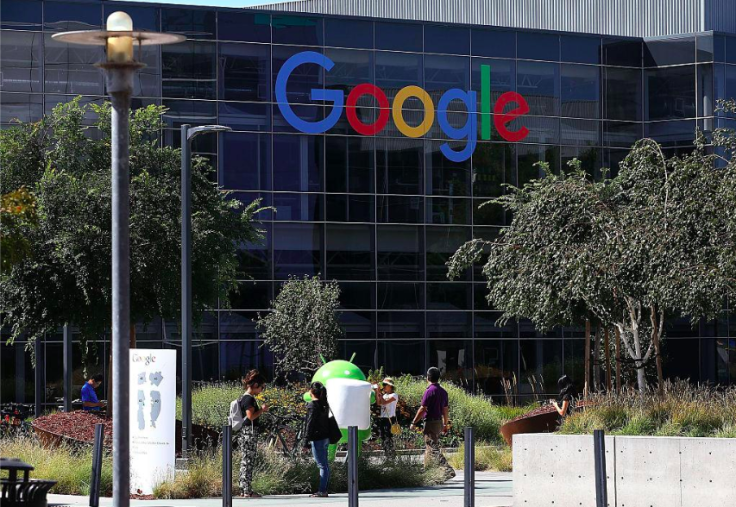Amazon.com And Google Are (Mostly) Burying The Hatchet

Amazon.com (NASDAQ:AMZN) and Alphabet's (NASDAQ:GOOGL) (NASDAQ:GOOG) Google have finally decided to call a truce. Google announced in a company blog post on Wednesday that beginning immediately, viewers would be able to watch Amazon Prime Video on both Chromecast and select Android TV devices, something that has been impossible for almost a year and a half.
The companies had signaled a cessation of hostilities earlier this year. In April, Google and Amazon issued a joint press release announcing availability of their streaming services on many of each other's devices.
The increasing competition in the streaming space was likely the catalyst for the armistice.
The competitors are now frenemies
Google said that in addition to select Android TV devices, many more Android smart TVs, set-top boxes, and streaming devices will also be compatible with Prime Video in the coming weeks and months.
In its own blog post, Amazon said that beginning today, the official YouTube app would be available for a variety of Amazon Fire TV devices, including the Fire TV Stick (2nd generation), Fire TV Stick 4K, Fire TV Cube, Fire TV Stick Basic Edition, and all Fire TV Edition smart TVs. The company said that it would "expand to additional Fire TV devices in the coming months." Amazon also said it would provide support for YouTube TV and the YouTube Kids service that is scheduled to launch later this year.
Amazon said the YouTube app will also work with Alexa, the voice-activated digital assistant that powers its Echo line of smart speakers. Users can say, "Alexa, watch music videos on YouTube," to open the app and start playing the top result. The company also touted expanded voice controls that allow the viewer to search among a variety of subjects, like "Alexa, play Women's World Cup highlights," and "Alexa, find makeup tutorials" -- all without saying "YouTube" again. The system also allows users to play, pause, resume, fast-forward, and rewind, or go to the next video using voice commands.
It isn't all sunshine and flowers
One noticeable omission from the announcement was any reference to Amazon's Echo Show or Spot devices. The Alexa-powered devices with video screens were also notably absent from the announcement earlier this year. Customers also won't be able to buy Google electronics, like the Google Home smart speaker or Pixel phone, on Amazon's e-commerce website, at least not anytime soon.
So while they have mostly buried the hatchet, there remain areas of contention between the rivals.
A history of tension
The rivalry between the two tech titans goes back a long way and had ramped up in recent years. Back in 2014, Eric Schmidt, who was then executive chairman of Google, shared the company's views on Amazon:
Many people think our main competition is Bing or Yahoo. But, really, our biggest search competitor is Amazon. People don't think of Amazon as search, but if you are looking for something to buy, you are more often than not looking for it on Amazon. They are obviously more focused on the commerce side of the equation, but, at their roots, they are answering users' questions and searches, just as we are.
As streaming came into focus, so did efforts by each company to shut the other out of their respective ecosystems.
Why the reversal?
Competition in the streaming space is heating up -- in both the subscription and ad-supported markets. Amazon competes in both areas, with subscription-based Prime Video and IMDb TV, its ad-supported service. Likewise, Google offers YouTube in both premium and ad-supported formats.
By not having their services available on each other's devices, both Amazon and Google were forcing consumers to choose competing products that offered both platforms, like Roku (NASDAQ:ROKU), which is widely known for its streaming devices. That company's connected-TV operating system -- Roku OS -- is present in one out of three smart TVs sold in the U.S. All of its devices offered access to both YouTube and Prime Video. By getting its platform into a growing number of homes, Roku was also able to supercharge its advertising business, at the expense of its feuding competitors.
Google and Amazon have finally seen the error of their ways, and in doing so, hope to stop other competitors from stealing their respective market share.
John Mackey, CEO of Whole Foods Market, an Amazon subsidiary, is a member of The Motley Fool's board of directors. Suzanne Frey, an executive at Alphabet, is a member of The Motley Fool's board of directors. Danny Vena owns shares of Alphabet (A shares), Amazon, and Roku. The Motley Fool owns shares of and recommends Alphabet (A shares), Alphabet (C shares), Amazon, and Roku. The Motley Fool has a disclosure policy.
This article originally appeared in The Motley Fool.





















